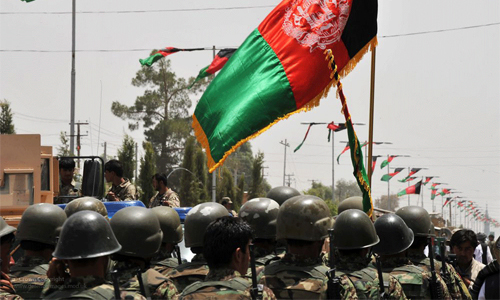Although Afghanistan is one the most insecure country in the world, the people even the officials are not, seemingly, familiar with the concept of security in this country. In context of Afghanistan, when we talk about security, it usually refers to lack of physical war and destruction while scientifically it has a vast concept containing various dimensions such as psychological security, economic security, job security, political security, individual security, social security, food security, legal security, religious security and so forth. Some of the political scholars highlight the identity dimensions of security defining security on the basis of cultural and identity criteria. They believe a secure society is the one which is safe from all forms of bullies related to one’s faith, culture and identity differences. In a comprehensive view, security covers protection of all citizens from all forms of threats including psychological threats, economic threats, employment threats, political threats, individual threats, social threats, food shortage, religious threats and so forth…
The most important factor behind the issue is long war and destruction. Unfortunately, the forty years war and conflicts has damaged everything including the culture of security and accountability in Afghanistan. According to the public expectation providing security is the duty of the government. They feel no ownership about their cities, environmental protections and national security. In fact, they feel, they have rights but not responsibilities. The government is responsible for everything including security, environmental pollution; air-pollution and so forth, but the citizens are not responsible against anything. They can spit on the public area; they can put rubbish on streets; if someone is dying in someone’s neighborhood because of starvation it is not someone’s business to help; if the house of a neighbor is blazing, it is not someone’s business to participate in putting out; if there is something suspicious in the neighborhood, it is also not someone’s business to inform the police. While in advanced countries, every citizen plays effective role in protection of their cities and countries. For example, if there are 100 million people in Japan, there are probably 100 millions police or protectors, as well. Therefore, we need to revive the culture of accountability and public engagement in fighting against insecurity.
The new Security Pact that recently initiated by the government is a good step towards engagement of people in insecurity issues but it will not be enough. It is a good step because at least it has realized the importance of public engagement in fighting against social and political crimes but it is not enough because the culture of public participation must be cultivated during schools, university and even childhood inside families or in kindergartens. For example, if we look at educational system of Japan, their schools does have not any janitors to clean the school classes and school compound aiming to practically train and engage students in environmental protection. Therefore, the schools and educational system need to cultivate the culture of participation from the childhood and not produce a lazy and irresponsible generation in the country.
The next points which need to learn from Japanese educational system, is illiteracy reduction policy. In Japan, education is compulsory at elementary and lower secondary levels and so the level of illiteracy became Zero in Japan! The same policy need to be applied in Afghanistan because the insecurity issue is largely rooted in ignorance and illiteracy level of people in the country. Given the high level of illiteracy and poverty in Afghanistan, the young generations are easily trapped by the intelligence networks. So, we need to fill these gaps which always misused by the enemies of the country. For this purpose, firstly, we need to make education compulsory in constitution, and secondly, we need to localize the Islamic education inside the country so as to prevent the youths from sending to the brain washing educational centers outside. If we had enough religious schools inside the country with enough facilities, then, the families would not send their children outside.
The last major reason behind our failure in fighting against insecurity is our reactionary approach or method. We never thought about role of education, unemployment, poverty and etc on national security. Sometimes it is heard that families are sold their children because of poverty. In fact, they are compelled to join terrorist groups or commit social crimes because of the same problem. It means that the imprisonment of hungry number of people who are struggling for their survival maybe not enough and so we need to unemployment reduction plan to mitigate the issues in longer run. In recent years, the Ministry of Labor and Social Affairs promised to solve or reduce the unemployment problem through sending labors out of Afghanistan, but it has not been implemented yet. According to the promised plan, it was supposed to send ten thousand workers to Qatar but no one knows why it has not happened so far.
By and large, no security plan will be successful unless it is built on the basis of scientific methods. Undoubtedly, the reactionary strategies such as using penalizing methods are important for enhancement of rule of law on everyone equally and decisively, but it will not be enough. Given the high level of poverty in Afghanistan, any any security plans need to be combined of penalizing and preventive strategy. Therefore, we must not forget the role of national culture, social justice, national oneness and most importantly the role of economy on national security. So, just the imprisonment of hungry people who are struggling for their survival may not be effective and so our plan must be combined all aforementioned components, especially we need to have unemployment reduction plan to mitigate the issues in longer run.
Home » Opinion » The Forgotten Dimensions of Security in Afghanistan
The Forgotten Dimensions of Security in Afghanistan
| Mohammad Zahir Akbari

